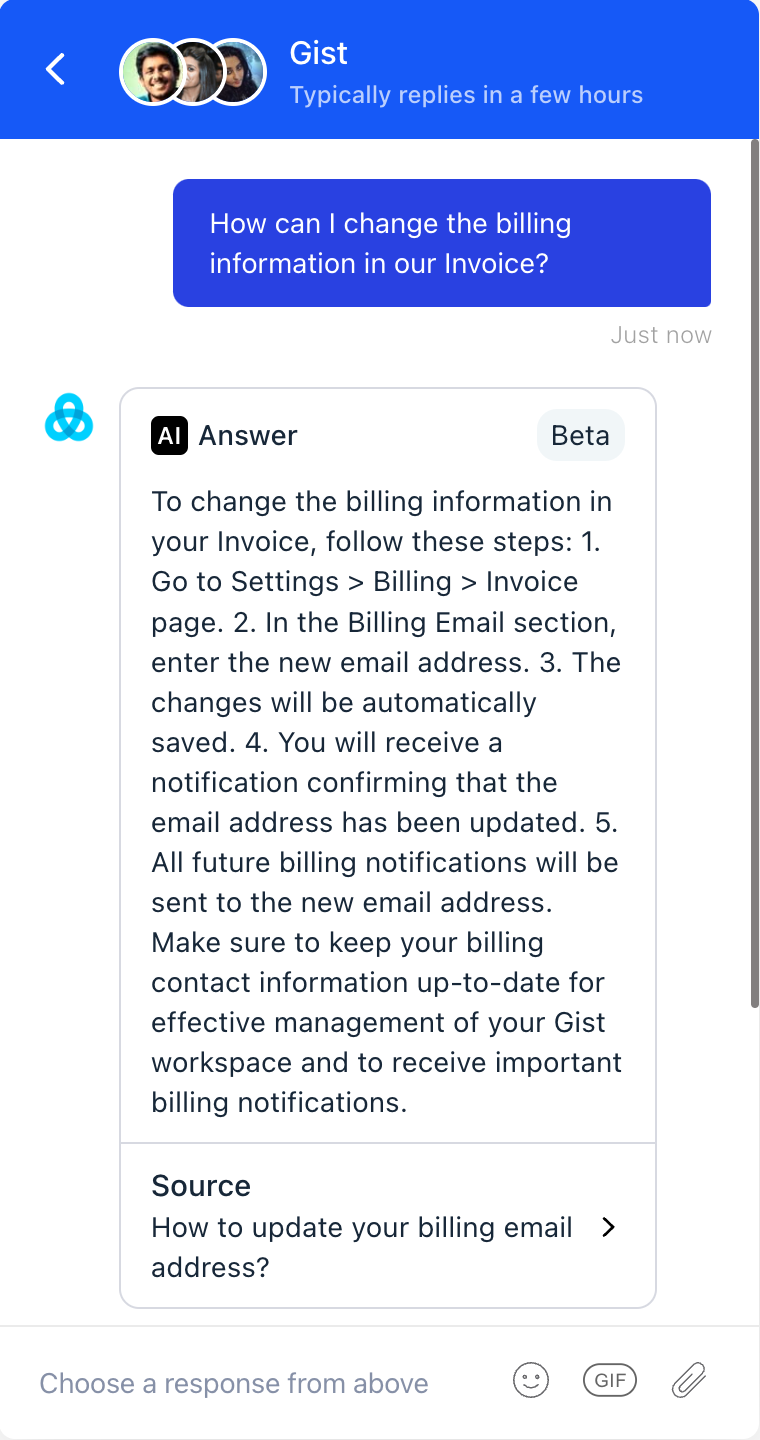Artificial Intelligence (AI) has become a pivotal part of customer service. Today, AI is capable of resolving up to 77% of customer service interactions, and a key component of this transformation is AI Answers. This guide aims to provide a deeper understanding of what AI Answers are and how they can benefit your support workflows.
What are AI Answers?
AI Answers are auto-generated responses provided by an AI system powered by GPT-4 to customer queries. These responses are created using your existing support content. This could include resources from your Help Center, FAQs, product manuals, or other support documentation.
When a customer asks a question, the AI system uses its machine learning capabilities to understand the query and search for the most relevant and accurate information from these resources. The AI then generates a response, ensuring it aligns closely with the information found in these resources.

How do AI Answers work?
Emma uses a combination of sophisticated AI algorithms and your existing support content to respond to a customer query.
Here's a simplified step-by-step process of how it handles a customer query:
- Understanding the Query: Using natural language processing (NLP) techniques, it first interprets the customer's question, breaking it down into its fundamental parts and understanding the context.
- Searching for Relevant Information: Based on its understanding of the query, it searches your available support content (like your Help Center or other external resources) to find the most relevant information.
- Generating a Response: it then uses its machine-learning capabilities to generate an appropriate response designed to answer the customer's question as accurately and completely as possible. We call it an AI Answer.
How can AI Answers help in your support workflows?
Integrating AI Answers into your support workflows can enhance the efficiency and effectiveness of your customer service in several ways:
- Instant Support: AI Answers provide real-time responses, giving customers instant support 24/7. This leads to higher customer satisfaction and loyalty.
- Deflection of Routine Queries: AI Answers can handle a high volume of routine or frequently asked questions. This deflects these queries from your human agents, allowing them to focus on complex issues that require a human touch.
- Seamless Integration: AI Answers can be seamlessly integrated into your existing workflows. They work in harmony with your human agents and other automation solutions, ensuring a smooth and efficient support process.
- Improved Resolution Rates: With AI Answers, resolution rates can significantly improve. Since your own support content powers the AI, it is capable of resolving a wide range of queries accurately.
Note: AI Answers work best when your support content is well-organized, comprehensive, and up-to-date. This allows the AI system to provide a wider range of accurate and relevant responses to customer queries.
How can I trust the accuracy of AI Answers?
While we aim to provide accurate and helpful answers to your questions, it's important to remember that machine learning models power AI Answers, and these are not perfect. They are built on statistical patterns, and as such, occasionally, they may return an incorrect response.
Here are the safeguards that we put in place to ensure that your AI Answers bot provides the most accurate answers:
- It only provides answers based on articles in your Help Center.
- It tries to disambiguate a question when it doesn’t understand the customer's question.
- When it does not know the answer, it will say it didn’t find an answer, and it can then handover to a human.
We work hard to make sure our model is as accurate as possible; however, the nature of current AI models means they may occasionally give an incorrect answer.
In the era of digital transformation, AI Answers serve as a powerful tool to enhance customer service and support. By understanding what they are and how they work, you can optimize their potential in your support workflows, improving your service quality, efficiency, and customer satisfaction.


